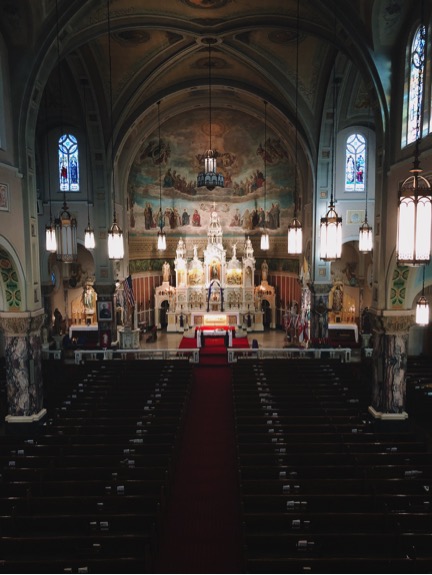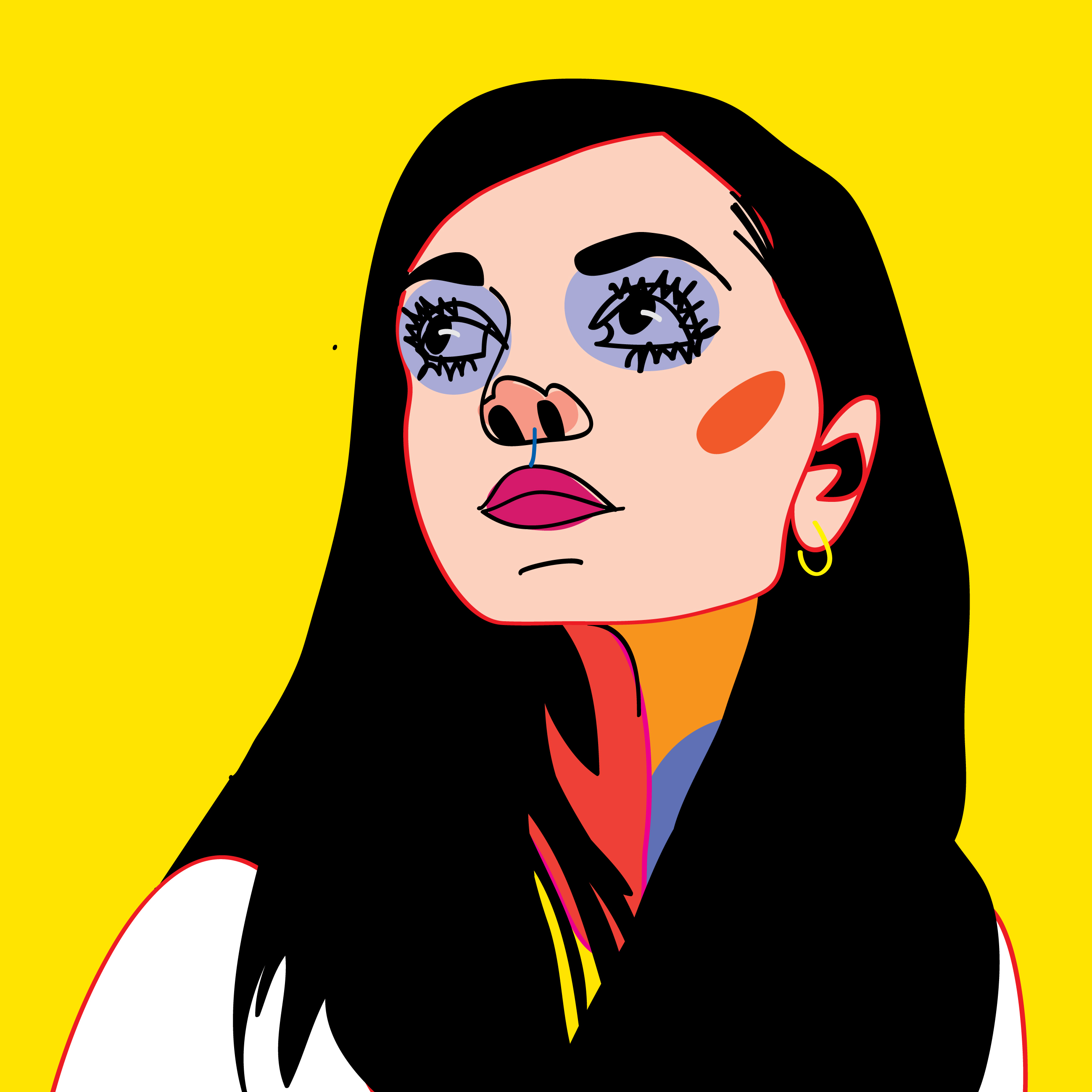I was brought up in an interfaith family. My mother was raised a devout Catholic in a tight-knit Polish family from the Cleveland intercity, while my father was born into a community of New York Jews. Growing up, my parents never tried to indoctrinate me into either religion, as they were relatively secular/borderline agnostic by the time I was born.
Yet, every holiday season, the menorah always sat proudly next the Christmas tree. I was accustomed to going to Easter egg hunts in a frilly pink and white dress while also attending a makeshift seder, complete with butchered Hebrew as I struggled through the transliterated Four Questions. To me, all of this appeared perfectly normal. It never occurred to me to question theology, which I think is a pretty common trend amongst second graders.
However, as I grew up and became more aware of what religion entailed, I was consistently questioned about my identity.
Throughout middle and high school, my Judaism became more of an oddity. I had moved to Albuquerque, New Mexico and one can deduce that Albuquerque is not exactly known as a Jewish epicenter. I was met with a lot of ignorance, but I also didn’t have the Jewish education to correct people or to defend my heritage. When the Holocaust was discussed in class, my classmates would look to me to provide a unique perspective despite not knowing any direct relatives that were involved. I heard jokes about Jews in the hallways and even had a friend congratulate me because I celebrated Hanukkah and Christmas and received gifts for both holidays, indicating my greed and therefore making me a “good Jew” — perpetuating a painful stereotype. I was tokenized and forced into an identity that I wasn’t particularly connected to yet.
Up until this point, I hadn’t defined myself as solely Jewish. I by no means was a practicing Catholic, but my mother’s religion and traditions were still a large part of my upbringing. We would recite “Now I Lay Me Down to Sleep” when I curled up into bed, there was a cross above my closet, and my mom would always tell me, “God helps those who help themselves,” when I would ask for help during simple tasks, like setting the table or tying my shoes. This resulted in oddly placed silverware and knots in my laces, but it did teach me perseverance and to trust my own instincts.
I eventually grew into my Jewish identity, finally comfortable with the notions and discussion surrounding religion. However, as I began to claim my religious choice, I was met with profound rejection. My alma mater has a fierce Jewish population that is incredibly vocal and proud, something I celebrated as an incoming freshman. Because my exposure to Judaism was limited, I was eager to delve into Jewish communities in college. But, I was told by several more observant Jewish students I wasn’t Jewish because my mother was Catholic, despite being a Reform Jew myself. I felt afraid to go to Hillel because I couldn’t find people willing help me understand services for the High Holidays, people dismissed me because I was uneducated about my own religion, and I felt alienated from my own culture. I thought I had to hide any trace of Catholicism to be accepted, so I buried it away. I stopped talking about Christmas traditions and wouldn’t answer questions about Catholicism, claiming ignorance even when I did know the answer. The curiosity and pride I once had for my maternal history faded.
Though college was painful, I was still determined to learn about Judaism. I’ve taken Hebrew classes, traveled to Israel, celebrated the High Holidays, found amazing friends willing to help me, and even began studying with a rabbi to reclaim the Jewish education I didn’t necessarily have as a child. Owning an identity that was largely defined for me has become an incredibly empowering experience. I’m creating my own traditions, becoming more comfortable with prayer, and my synagogue is a wonderful community for me.
However, I still struggle with how to include my entire interfaith experience into this new sense of self.
During a recent trip to visit my mother’s family in Cleveland, we took a drive through the neighborhood my mom grew up in. The streets have Polish names and the houses resemble small Victorian mansions. My grandmother pointed out where my great-grandfather’s cobbler shop once stood, the house my mom and her siblings first remember, and how my family took up about two city blocks, filling houses with cousins, aunts, uncles, and anyone else who was even slightly related. And of course, at the center of it all, was the St. Casimir Parish.

From the outside, the church is unassuming. Though a tall and looming structure, the brick is warn, the fence a little rickety, and the overall color scheme is rather uninviting. However, the moment I stepped inside, my breath was taken away. The murals along the walls, the gilded altar, and the stained glass resembled churches I had seen in my art history textbook, tucked away somewhere in France or Italy. Yet, right here in the inner sanctum of Cleveland, was this immense jewel.
When my mom and I carefully made it up to the choir loft, choral books with Polish lyrics sat on the piano and the paintings on the ceiling made me dizzy with their detail. I had never had a deep connection to Catholic theology, but in that moment staring at this beautiful church, I could understand how someone would find a home and a community here.

I am whole-heartedly Jewish, but I also cannot dismiss the history and rich culture behind my Polish-Catholic heritage. For so long, I felt I had to entirely dismiss any Catholic influence on my life in an attempt to prove to Jewish and non-Jewish communities alike that even though my mom isn’t Jewish, I am. I realize now that it’s impossible to hide where you come from and who you are. I probably never will attend church services again beyond a wedding ceremony or a funeral, but I can’t deny where my family comes from.
The journey to Judaism has been difficult to say the least, but I’ve made a point to be true to my own discoveries and to keep learning about a religion and culture I love so dearly. I could have easily been swayed by the world around me, telling me I wasn’t Jewish enough or that I had to give up a part of myself. But I didn’t. Turns out my Catholic mom was right all along: God helps those who help themselves.
Header image by Maria Zaikina



